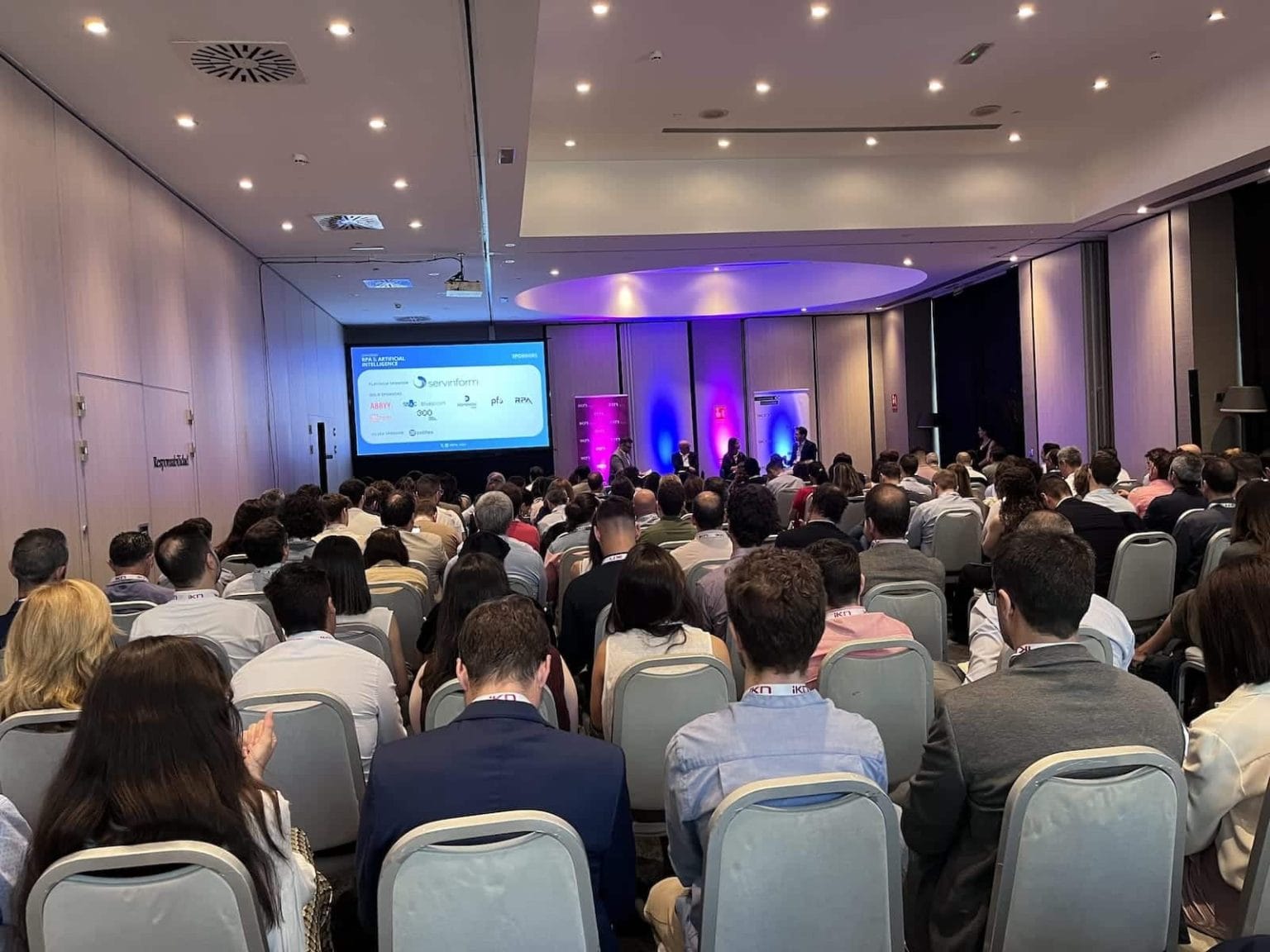The 6th edition of the RPA & Artificial Intelligence Day event, organized by IKN and recognized as a key meeting point in Spain for Artificial Intelligence and Robotic Process Automation, was held on May 30 in Madrid. The congress brought together 250 technology, cybersecurity, and process automation experts, as well as 35 speakers from some of the most important national and international companies.
During the event, the significant evolution of process automation was highlighted, which has progressed towards an approach where the integration of technologies such as Artificial Intelligence (AI), Natural Language Processing (NLP), and continuous learning capabilities has radically transformed the landscape.
Synergies and ethics in hyper-automation were discussed in the first panel of the event, emphasizing the alignment of transformation with business objectives and highlighting the formation of new tools and the potential for implementing the return on investment (ROI) resulting from task automation in other areas. The importance of generating synergies with different teams to achieve complete automation was also stressed, emphasizing that evolution is endless and that change should be embraced with openness.
Francesc Aguilera Bonfill, Data, Privacy & AI Manager at CaixaBank, emphasized the ease of developing AI algorithms compared to mitigating bias. He also highlighted the need for ethics in AI to be lawful, ethical, and robust, mentioning the 5 ethical principles recognized by the AI Act to concretize the measurement of ethics, emphasizing the need for clear procedures to measure it.
Challenges and opportunities in security and specialized training were also addressed. The rapid advancement in technology has led to widespread adoption of AI and RPA tools in various sectors. “Organizations are recognizing that investment in technology is not simply an expense but a safe bet to maximize revenue and operational efficiency,” commented Jorge Valero, Director of Applications and Data at Aedas Home. “Specialized training in technologies such as RPA and APIs has become crucial to ensure their effective and purposeful use.”
Security has gained even more relevance in the context of AI, as its use can trigger previously unthinkable attacks. “Hackers have started to leverage these technologies for their own purposes, presenting significant challenges in terms of data and system protection,” noted Diego Gil, CIO of Alannia Resorts. As organizations integrate AI tools, the need to address these vulnerabilities and protect business assets, from data to infrastructure, becomes evident.
Generative AI and disruptive technologies are transforming business processes. “In the healthcare sector, generative AI is being successfully used for tasks such as analyzing radiological images, with a high level of accuracy in result interpretation. This represents a significant advancement in the field of medicine, where approximately 90% of data is presented in the form of images,” said Meritxell Corbeto, RPA Project Manager at Bayer. “At Bayer, for example, a ‘suite of applications’ based on ChatGPT has been developed to enhance workplace efficiency.”
The concept of “super robots” and the application of technologies such as process mining are also drastically transforming how companies manage their processes, offering the ability to understand the purpose and sentiment behind each operation. The exponential growth in technology necessitates that companies move away from operating as “islands” and participate comprehensively in organizational objectives.
This, in turn, requires internal training and professional development to address the exponential growth of technology. “In the future, this technology is going to be part of every company since it costs less than 50% of what it normally would,” commented Carlos Tadeo Campuzano, RPA Service Manager at Dominion Digital.
In conclusion, the implementation of AI and RPA not only presents challenges but also opportunities. The ability to predict and modify data-driven processes, the use of generative voice agents to enhance customer experience, and real-time visualization of complex operations illustrate the positive impact and transformation that these technologies offer in various business environments.

